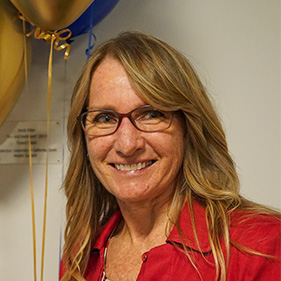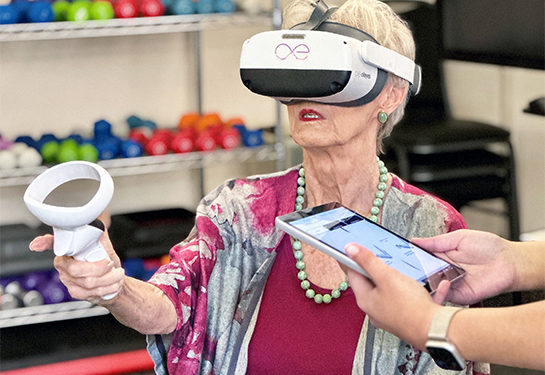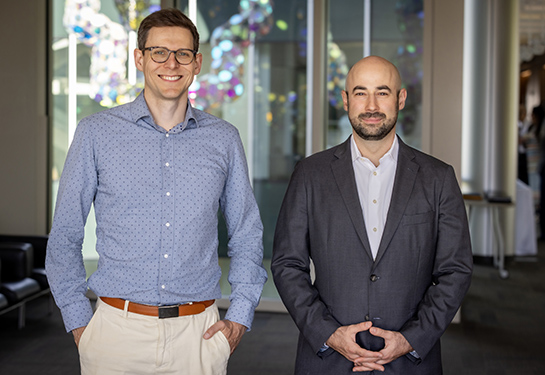UC Davis Health opens region’s first all-in-one Parkinson’s disease multidisciplinary clinic
Health system is home to a Parkinson’s Foundation Center of Excellence
UC Davis Health celebrated the opening of the region’s first Parkinson’s Disease Multidisciplinary Clinic at a ribbon-cutting ceremony on Jan. 23.
The clinic, located in Midtown Sacramento, is part of the UC Davis Center for Movement Disorders and Neurorestoration, which was recognized in June 2023 as the region’s first Parkinson's Foundation Center of Excellence. The designation recognizes top expertise in clinical care for patients with Parkinson's disease.
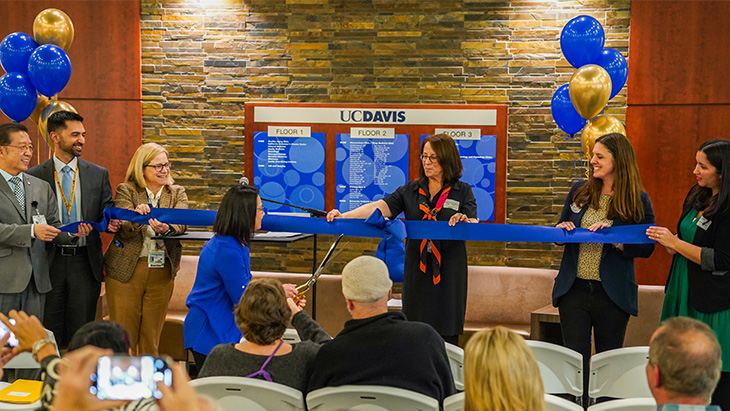
Amy Brooks-Kayal, chair of the Department of Neurology, is proud to see UC Davis Health named a Parkinson’s Foundation Center of Excellence and to launch the new clinic. “The multidisciplinary clinic provides the cutting-edge, comprehensive care our community values in a convenient, patient-centered fashion. It will also facilitate clinical research that will translate to even better care tomorrow,” Brooks-Kayal said.
The UC Davis Center of Excellence is co-directed by Lin Zhang and Norika Malhado-Chang, professors of neurology. The multidisciplinary clinic has been Malhado-Chang’s dream for many years. She is overjoyed to see it finally open. “I grow as a Parkinson’s neurologist working as part of this amazing team, with colleagues who all share the same goal: helping our patients live their best lives with Parkinson’s,” Malhado-Chang said.
Living with Parkinson’s disease requires significant coordination of care. While there is no cure, medications, treatments, and other therapies can help relieve symptoms. Patients and their families receive care from multiple specialties, which can be difficult and time-consuming to navigate.
The Parkinson’s Disease Multidisciplinary Clinic simplifies care by bringing experts from many specialties to one location. A clinic coordinator and nurse navigator support patients and families as they see many specialists during one visit. These include experts in areas such as nutrition, speech therapy and neuropharmacology.
I feel less anxiety, because I know I have a whole team of people working who will tell me ‘Here’s what you need to do next.’ It’s very satisfying.”—Terri Van Bibber, patient
A personalized, convenient patient experience
Terri Van Bibber was one of the first patients seen at the new multidisciplinary clinic. “As a result of my visit last week, I feel less anxiety because I know I have a whole team of people working who will tell me, ‘Here’s what you need to do next.’ It’s very satisfying,” she said.
Access to the clinic is Van Bibber’s dream come true. When she was diagnosed with young-onset Parkinson’s disease nine years ago, she began to look across the country for centers of excellence, planning to go wherever necessary to get the best care. “Knowing that’s now right here, in my own community, it’s amazing!” Van Bibber said.
“I would like to recognize our grateful patients and community, whose generous donations allow us to hire the many specialists in the Parkinson’s Disease Multidisciplinary Clinic,” Malhado-Chang said. She is beginning research to study the impact of the multidisciplinary clinic model on patient outcomes.
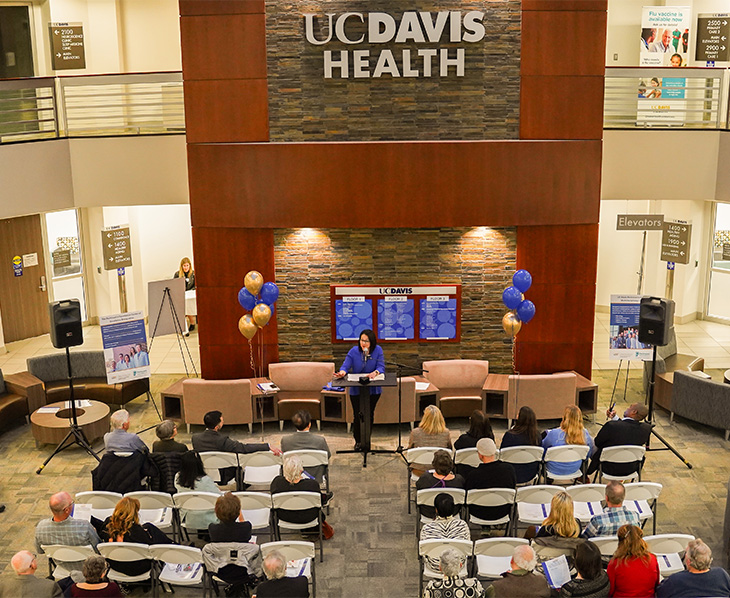
Leading-edge research
Zhang described UC Davis Health’s comprehensive exploration of Parkinson’s: “We emphasize the importance of addressing various aspects of the condition and patients’ lived experiences to gain a holistic understanding and generate potential breakthroughs in treatment types,” he said. For example, future research includes innovative clinical trials and lab-to-clinic investigations aiming to treat Parkinson's at an early stage, with the potential of halting its progression.
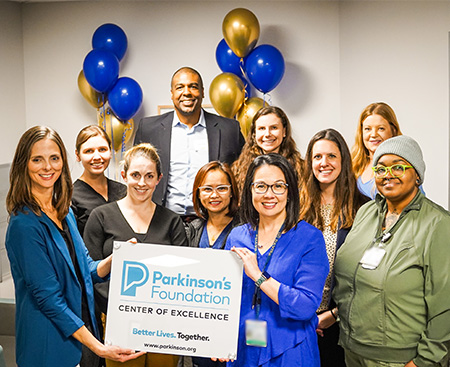
Currently, faculty members are investigating new medications and repurposing old ones for novel uses. The scope extends to studies evaluating whether new surgical interventions may help manage Parkinson's symptoms better. For example, UC Davis surgeons are studying whether adding low-frequency stimulation to an existing deep brain stimulation treatment regimen will improve cognitive performance in addition to the current benefits for movement. UC Davis researchers are also looking into lifestyle factors, including nutritional deficiencies linked to the disorder.
UC Davis Health collaborates with organizations in the Sacramento community and beyond to improve care and seek better treatment options for Parkinson’s disease. Collaborative programs include Parkinson’s Foundation Moving Day, the Parkinson’s Association of Northern California (PANC) Annual Education Conference and more.
Resources

